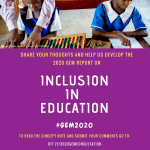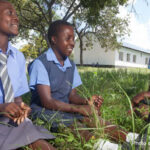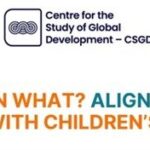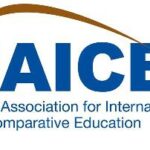Following previous UNESCO Global Education Monitoring (GEM) reports on education and the other SDGs (2016), accountability (2017/8), migration and displacement (2019), the 2020 GEM Report will focus on inclusion.
You are invited to suggest literature, data analysis and case studies to help inform the team’s writing.
Echoing the overall orientation in the SDGs to ‘leave no one behind’, and as outlined by its Concept Note, the 2020 Report will take an in-depth look at inclusion and education, showing the barriers faced by the most vulnerable, and with a particular focus on people with disabilities. By analysing policies the world over it will present evidence on the different elements of education systems that can support inclusion, such as laws and policies, governance and finance, curricular and learning materials, teachers, school infrastructure, school selection and parental and community views. A range of indicators will be examined for their effectiveness in measuring inclusion in education as well.
This consultation will run until the end of September. Please read the Concept Note and send your suggestions, keeping the following questions in mind:
- What are the key policy solutions for each of the elements of inclusive education to ensure the achievement of SDG 4?
- How can common obstacles to the implementation of such inclusive education policies be anticipated and overcome?
- What arrangements are needed to coordinate and collaborate among government sectors, tiers of government and with other stakeholders to overcome overlapping dimensions of exclusion?
- How do education systems monitor exclusion in education (both from the aspect of individual education attainment or success and systemic factors) and how can current practices be improved?
- What channels of financing are used for inclusive education policies around the world, how are they monitored and how do they affect local practice?
The team would like to invite you to:
- Provide substantive feedback to the proposed lines of research
- Recommend interesting examples of policies and practices from around the world that highlight how inclusive education policies look like in different countries and how inclusive education is implemented in schools and classrooms
- Recommend potential areas of new research drawing on already established or previously unexplored sources of quantitative and qualitative data
The views of researchers, academics, governments, non-governmental organisations, aid donors, teachers, youth and anyone with an interest in education and development are most welcome.
Post your contributions as comments to the GEM blog, providing web links to research reports, policy papers, evaluations, and other documents or datasets that you think would be useful for the Report team. Or email your comments and attachments of documents or data directly to gemreport@unesco.org with ‘2020 Report Consultation’ as a subject heading.





